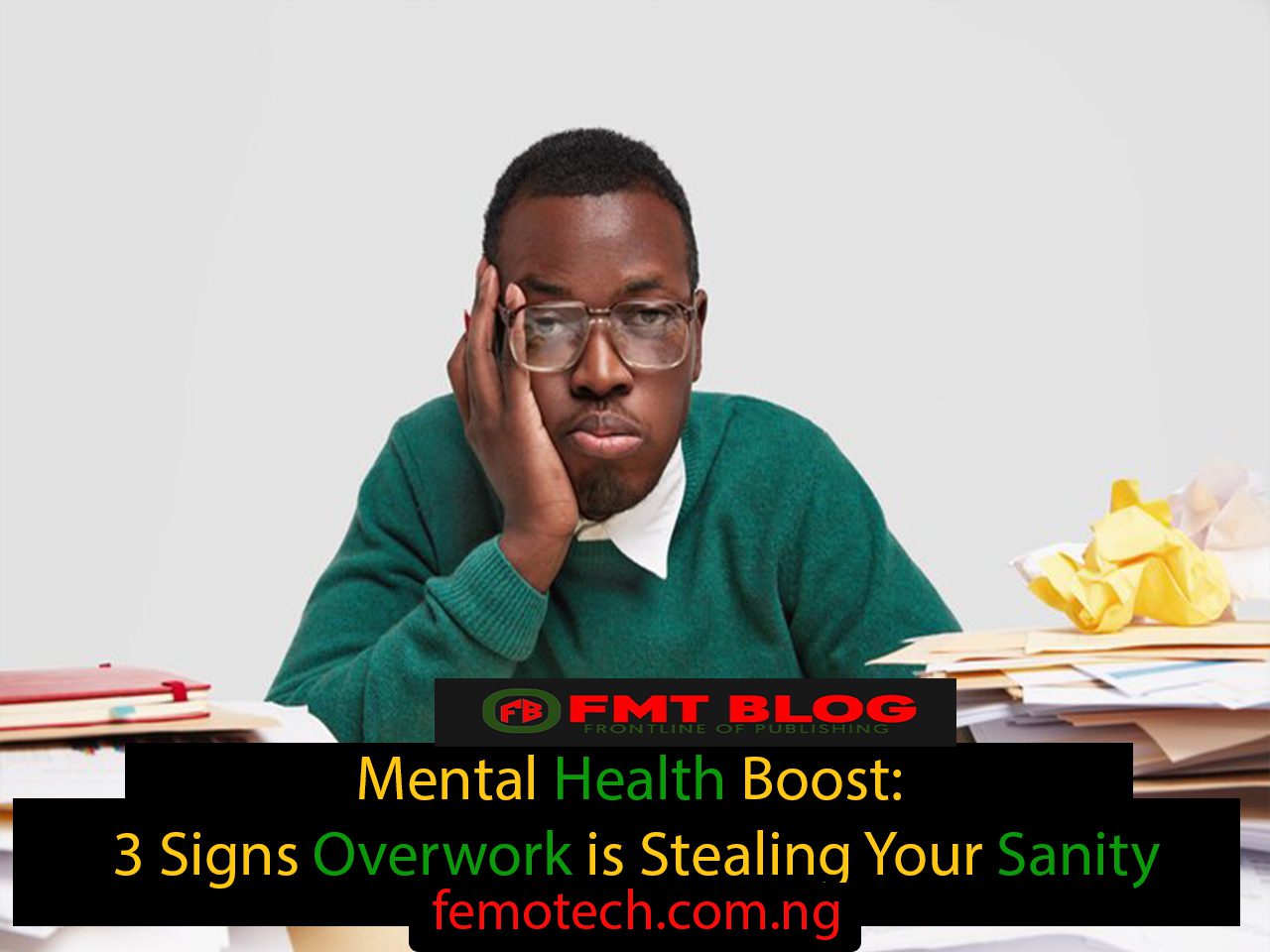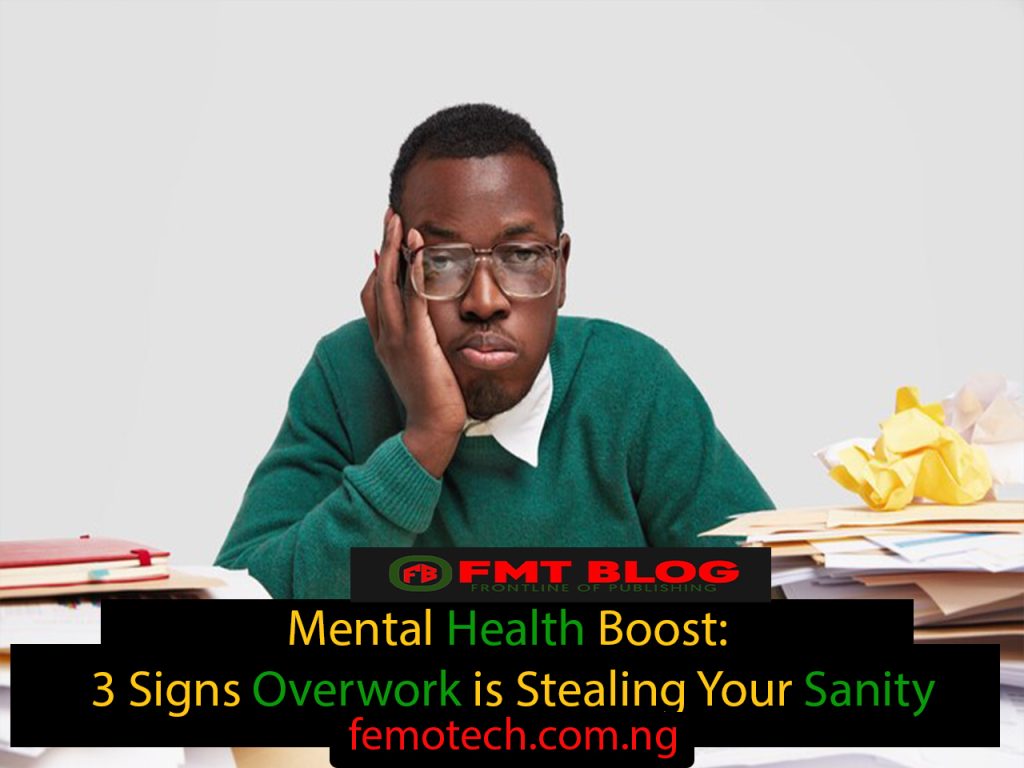
Is your job draining your energy and making you feel stressed and unhappy? This post explains how working too much can hurt your mental health. We’ll also share some easy tips to help you create a healthy balance between your work and your personal life. Learn how to take care of yourself and stop burnout for good!

Introduction
I know sometimes we all push ourselves to do more, especially when we have a target or a particular goal that must be achieved. But when working hard all the time becomes the norm, it can really have a bad effect on our mental health.
I want to ask you a simple question, and I want you to be sincere with your answer. Have you ever had one of those days where you just can’t think straight? Maybe you’re feeling somehow foggy, forgetful, or like your brain is just running on empty. (I know that sounds familiar.) Well, it could be a sign that you’re overworking and feeling exhausted, which is bad for your mental health .
What is Overwork?
In a simple term, overwork means working way more than your body and mind can comfortably handle. Now let’s look at overwork from another angle. Think about eating too much of your favorite food. At first, it’s delicious! But after a while, you might start to feel stuffed and uncomfortable (and maybe even regret that extra slice of cake!). A healthy workweek is typically between 35 and 40 hours. So if you’re working much more than that, consider it overwork.
Now, before you start counting and calculating the hours and probably stressing about your schedule, there is something I want you to understand: Overwork isn’t just about the number of hours you spend at work. It’s also about how intense your work is, whether you get breaks throughout the day, and how much stress you feel from your job. Basically, if you feel constantly overwhelmed and like you can never relax, even outside of work, then it’s probably a sign that you’re working too much. Your work shouldn’t be making you feel so drained that it affects your mental health.
Overwork and its Effects on Mental Health
So, how exactly does overwork mess with your mental health? Here’s the not-so-fun part:
1. Burnout
One of the effects of overwork on your mental health is burnout. If you feel like you’re completely drained, both emotionally and physically, that’s burnout. Overworking for a long time can lead to burnout, which leaves you feeling like you just can’t cope anymore (you know what I mean). You might feel cynical (like you don’t care about your work anymore), exhausted, and disconnected from your job. This effect of overwork on mental health is definitely not a good recipe for a happy and healthy mind.
2. Inadequate Sleep
Another negative impact of overwork on mental health is inadequate sleep and not being able to sleep at the right time. When you overwork yourself, it can mess up your sleep big time. If you’re feeling stressed and you continue working all the time, it can be hard to get quality sleep at night, which is not good for your mental health. This will leave you feeling even more exhausted the following day.
3. Frequently Forgetting Things
Another effect of overwork on mental health is that you frequently forget things; sometimes you forget where you put your keys. Overwork can make it very hard for your brain to work as well as it normally does. Just like any other part of your body, your brain needs enough rest to function properly. When you don’t give your brain time to rest by overworking, it can be hard to concentrate, focus, and remember things. You might find yourself feeling forgetful, making mistakes at work, or having trouble learning new things.
Follow us on socials → Telegram | X/Twitter | Facebook | WhatsApp |WhatsApp Channel |Mobile App
Conclusion
If, in any way, you notice any signs of overwork and it’s affecting your mental health, there are great and easy steps that you can take to make yourself feel better. In the next part of this article, we’ll look into some wonderful strategies that you can use to help you manage your workload and, at the same time, prioritize your well-being. Remember, your mental health is more important! Take care of yourself, and make sure you ask for help whenever you need it. Know that a healthy and happy you is a much better and more productive you, and that will not only benefit you but also everyone around you.



